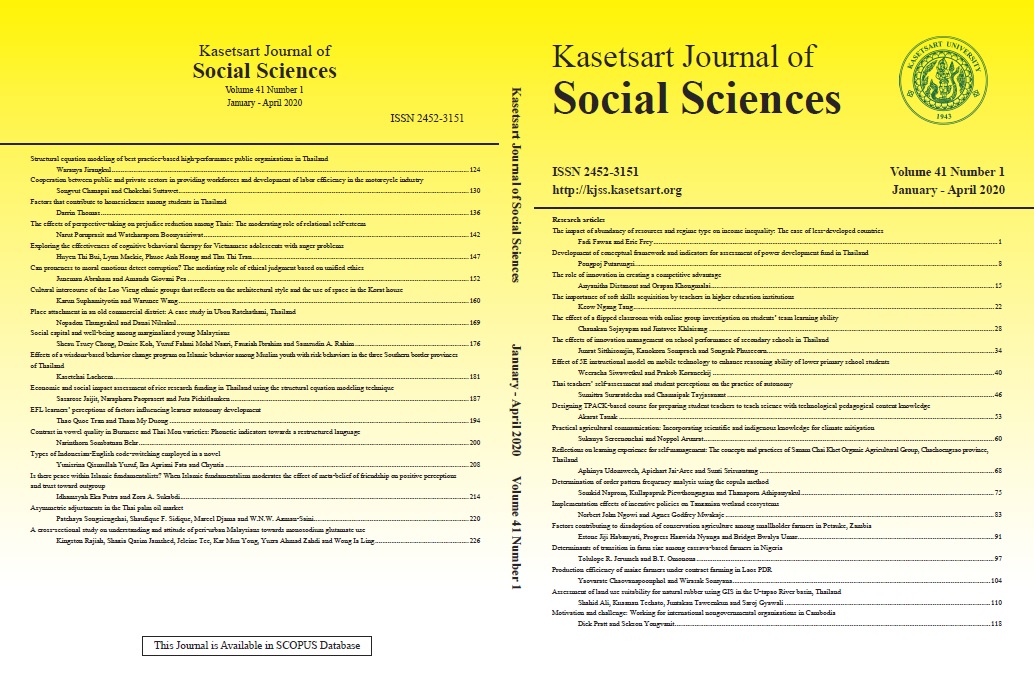Can proneness to moral emotions detect corruption? The mediating role of ethical judgment based on unified ethics
Keywords:
corruption psychology, ethical judgment, moral emotion, proneness,, public officialsAbstract
The psychological process of corruption that integrates the role of moral emotions proneness, and ethical judgment remains unclear, as for example in the placement of
antecedent, mediator, and outcome variables. This study tested the hypothetical framework that moral emotions proneness can indirectly predict corruption through mediation by ethical judgment. The research participants were 100 public officials who held leadership positions in Central Sulawesi, Indonesia. We used a correlational-predictive design with path analysis. The results showed that most of the hypotheses were supported. This study contributes in providing extensions to the proposition that proneness to moral emotions (guilt-negative behavior evaluation and shame-negative self-evaluation) might detect corruption. It does, the results revealed, but first needs to influence ethical judgment.
Downloads
Published
How to Cite
Issue
Section
License
Copyright (c) 2018 Kasetsart University

This work is licensed under a Creative Commons Attribution-NonCommercial-NoDerivatives 4.0 International License.
This is an open access article under the CC BY-NC-ND license http://creativecommons.org/licenses/by-nc-nd/4.0/










